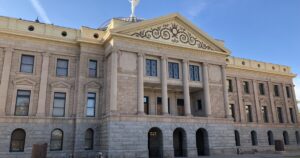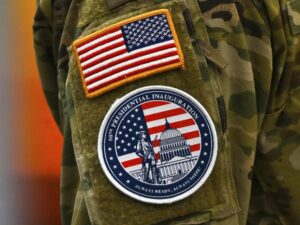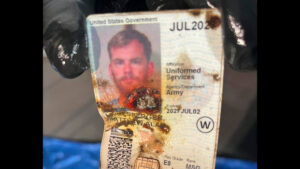In a recent turn of events, Congress has opted not to mandate the Department of the Air Force to initiate a pilot program exploring the potential for airmen and Guardians to grow beards. This decision bypasses one of the most requested policy changes among service members.
While the annual defense authorization bill, which was recently unveiled, does not include the beard pilot program, legislators have requested an Air Force briefing by April. This briefing will assess the feasibility and advisability of the initiative. The request is detailed in a report linked with this year’s National Defense Authorization Act, as seen in the accompanying document.
The House initially supported the proposal, introduced earlier this year by the House Armed Services Committee. However, the Senate did not back the measure, leading to its exclusion from the final version of the NDAA bill.
Though this report does not have the force of law, the Pentagon typically adheres to its recommendations. This decision on the beard pilot program comes at a time when beards have become increasingly common among active-duty airmen and Guardians.
According to Military.com, the number of active-duty airmen with shaving waivers for pseudofolliculitis barbae—a condition that primarily affects Black men and causes painful razor bumps—nearly doubled from 10,965 to 18,991 between 2021 and 2023. Similarly, the Space Force saw its shaving waivers almost double from 151 to 288 waivers in just one year, from 2022 to 2023.
Congress has tasked the Air Force secretary with investigating “the compatibility of beards with military equipment that requires an airtight seal,” as well as examining “the effect of beard growth on discipline, morale, and unity within the ranks,” according to the bill report.
The report also seeks a determination on whether allowing beards enhances inclusivity, particularly for members with medical conditions like pseudofolliculitis barbae or those who wish to grow beards for religious reasons.
Additionally, the secretary is asked to brief Congress on any “negative perception or bias toward members with beards” and propose strategies to counter such biases.
Military.com initially reported on the internal discussions regarding beards in the Air Force back in 2022. This discussion was part of the Black/African American Employment Strategy Team’s efforts to address this issue. By the end of that year, a significant policy shift allowed members of the Air Force honor guard to participate in demonstrations with beards if they had shaving waivers, as reported by Military.com.
The decision by Congress to not pursue the pilot program has sparked mixed reactions on social media among service members and veterans, with some expressing frustration over the stalled progress on beard policies. “I have no hope for beards anymore,” one commenter lamented on the Air Force sub-Reddit, adding, “It will take at least another generation of leadership to retire before there’s even a chance.”










